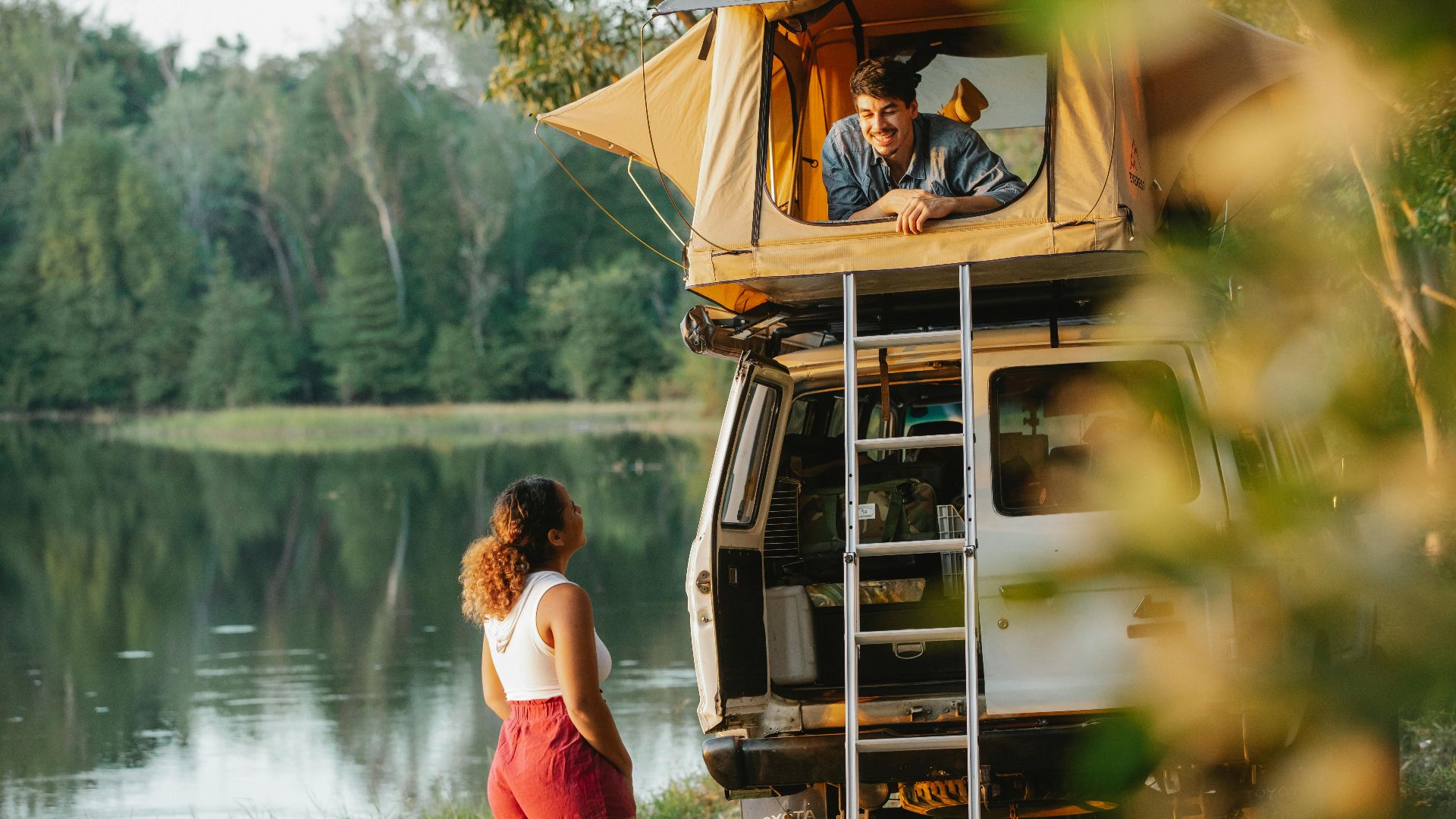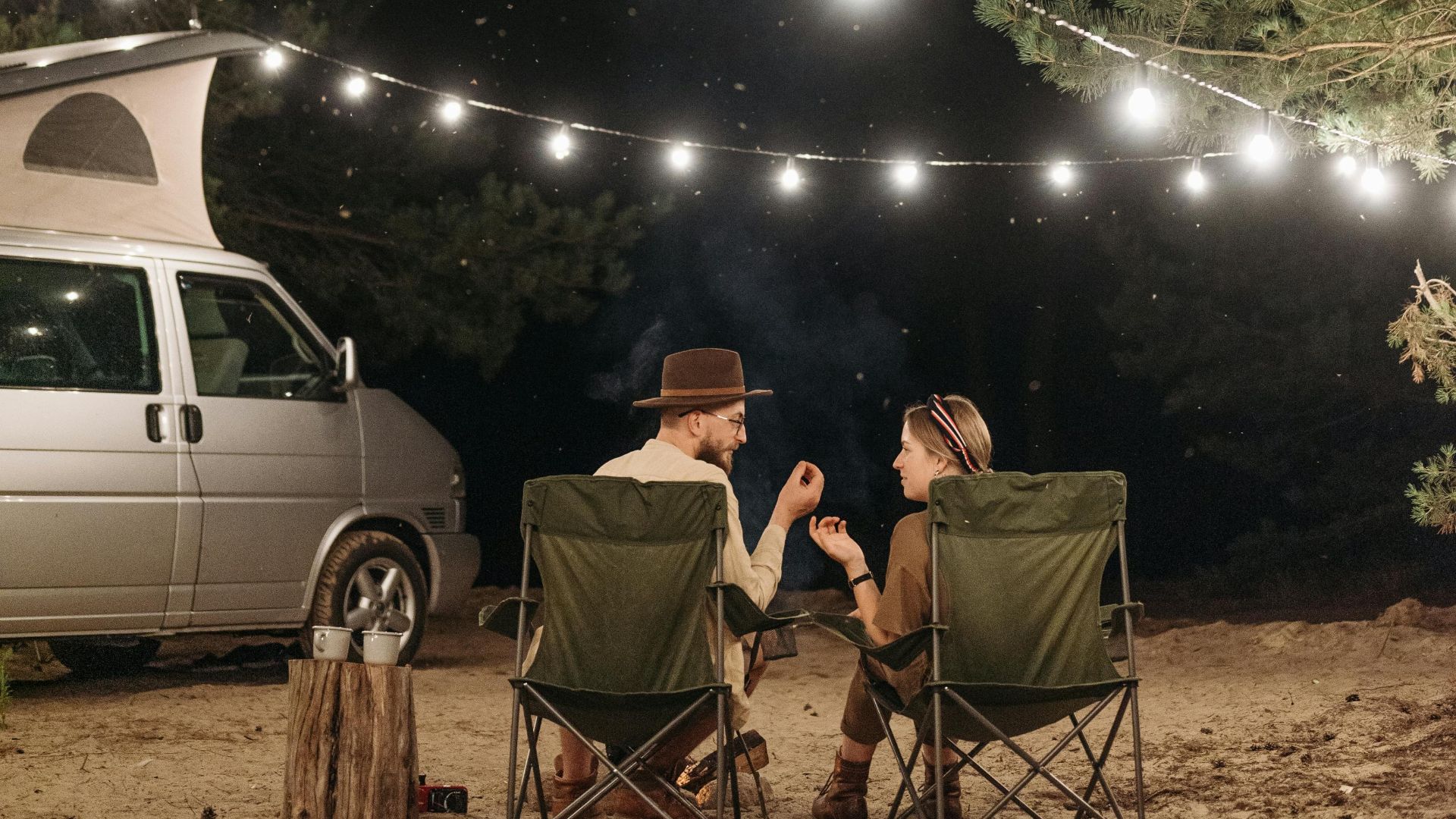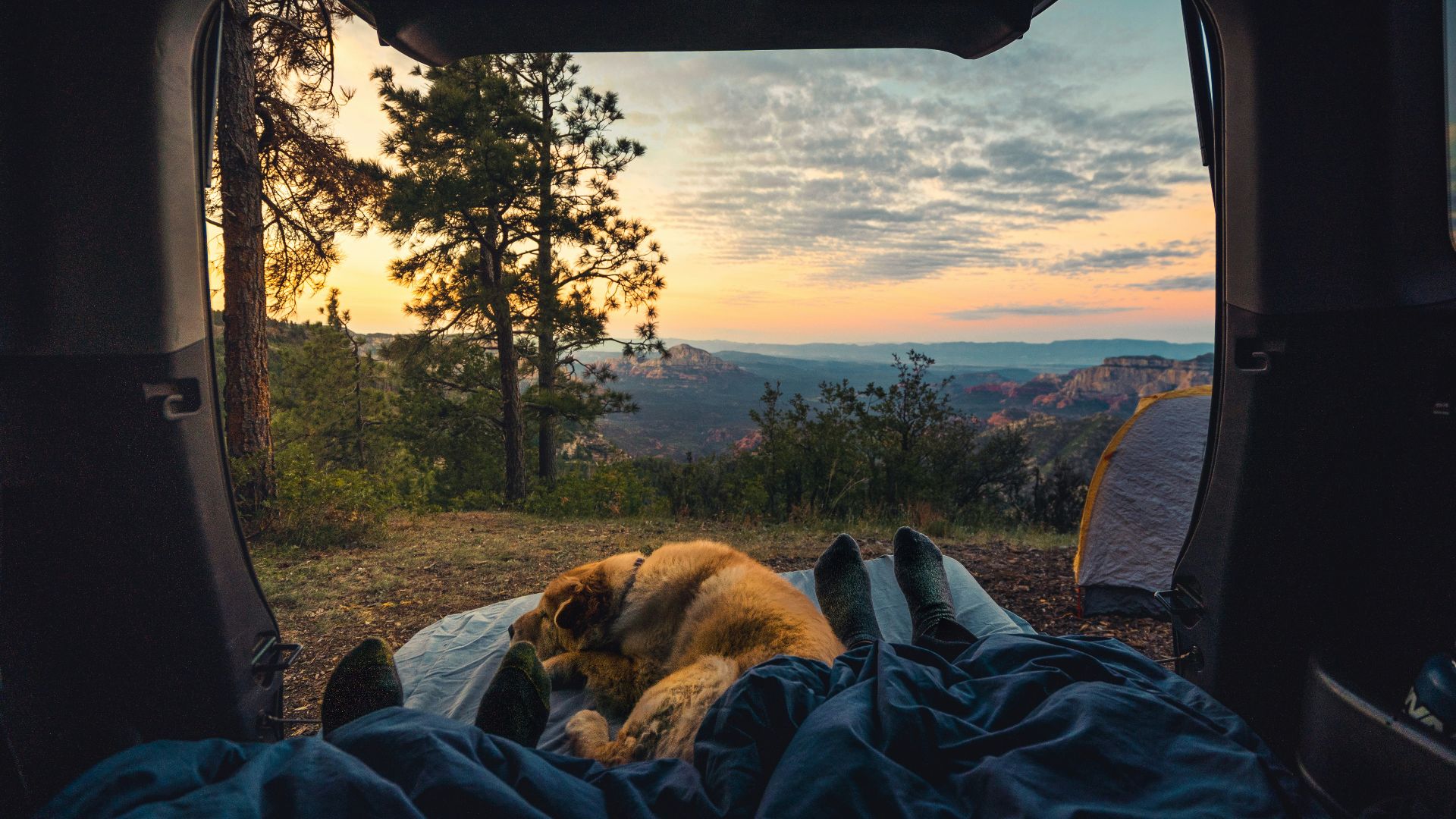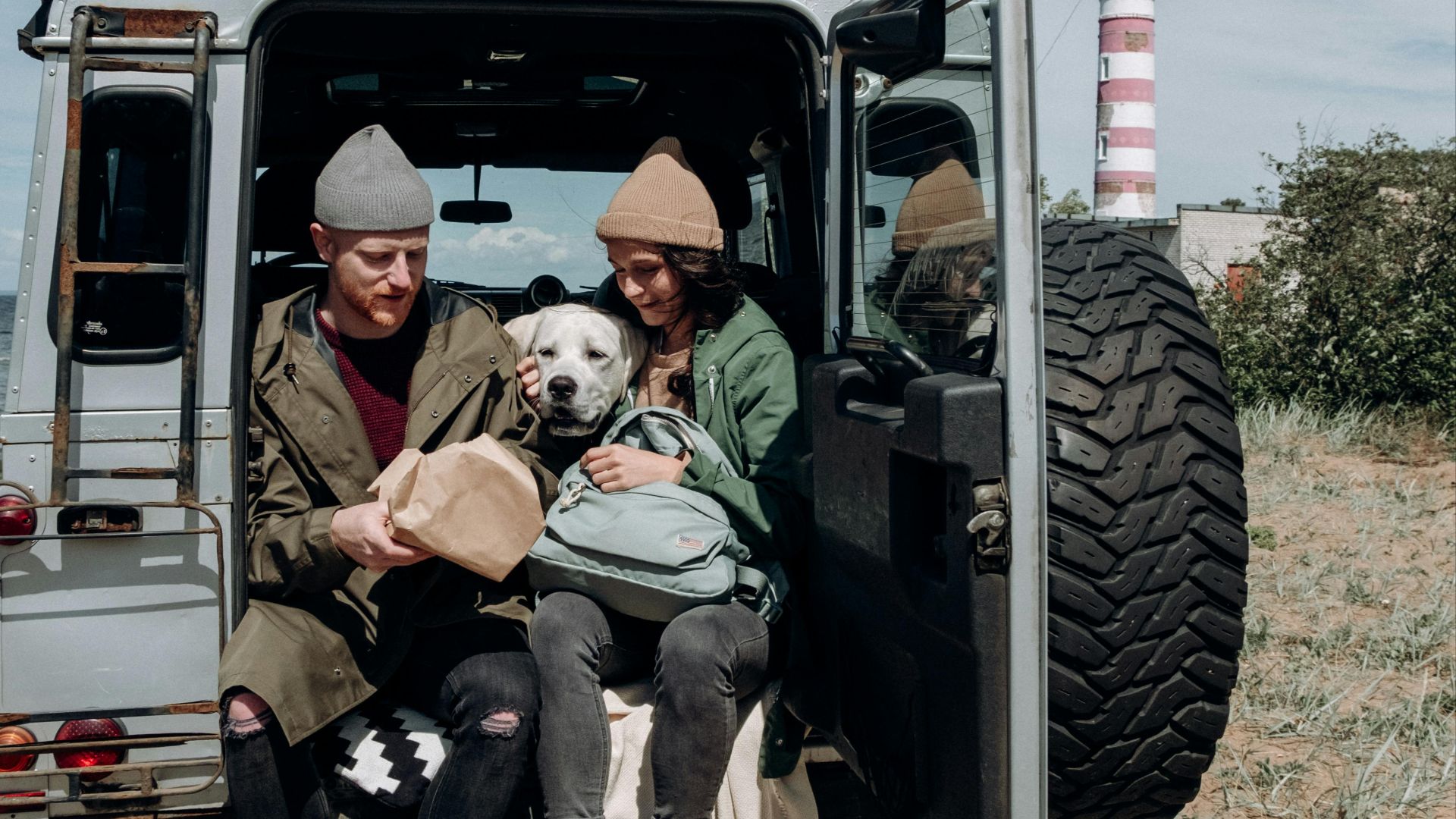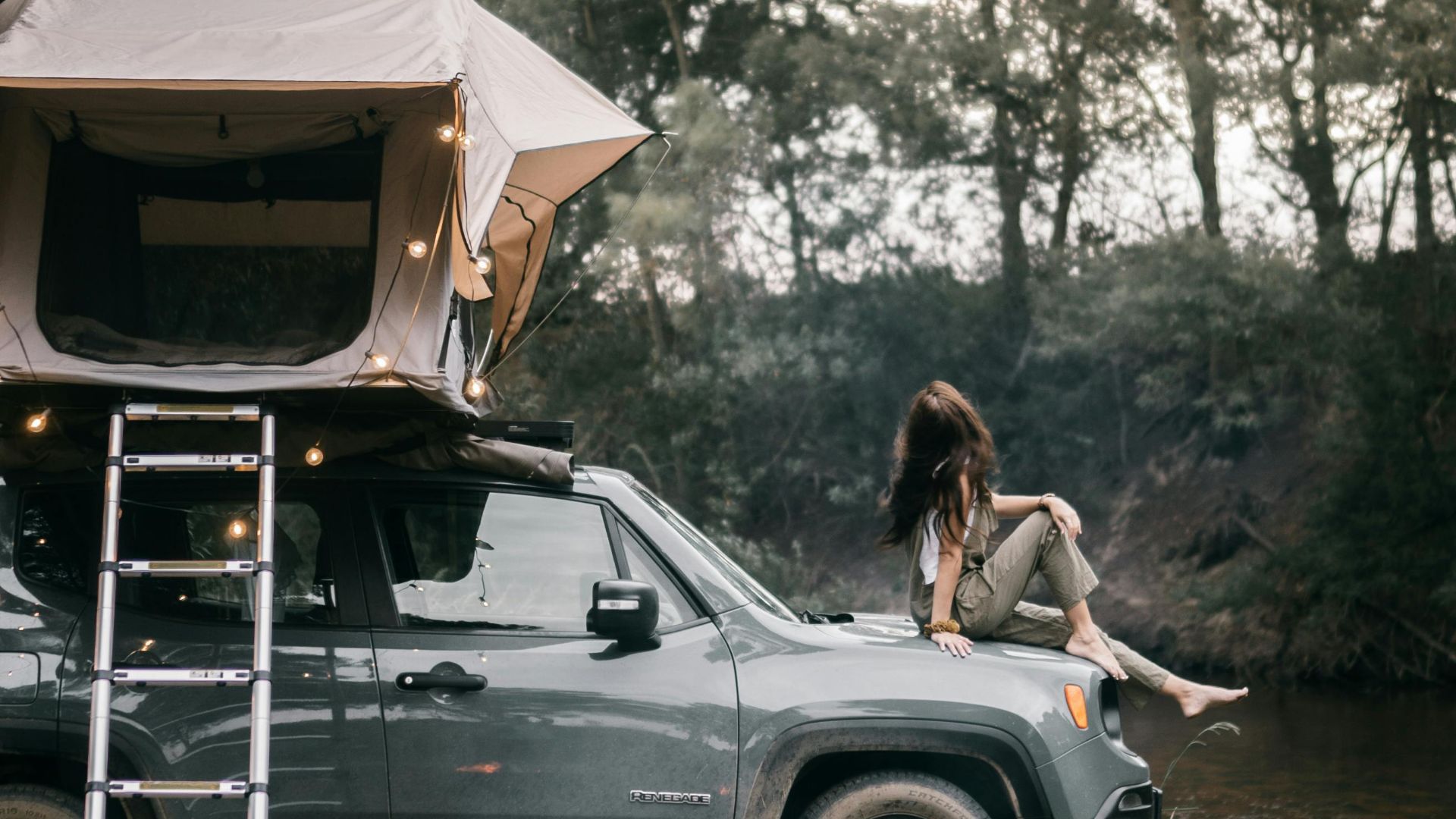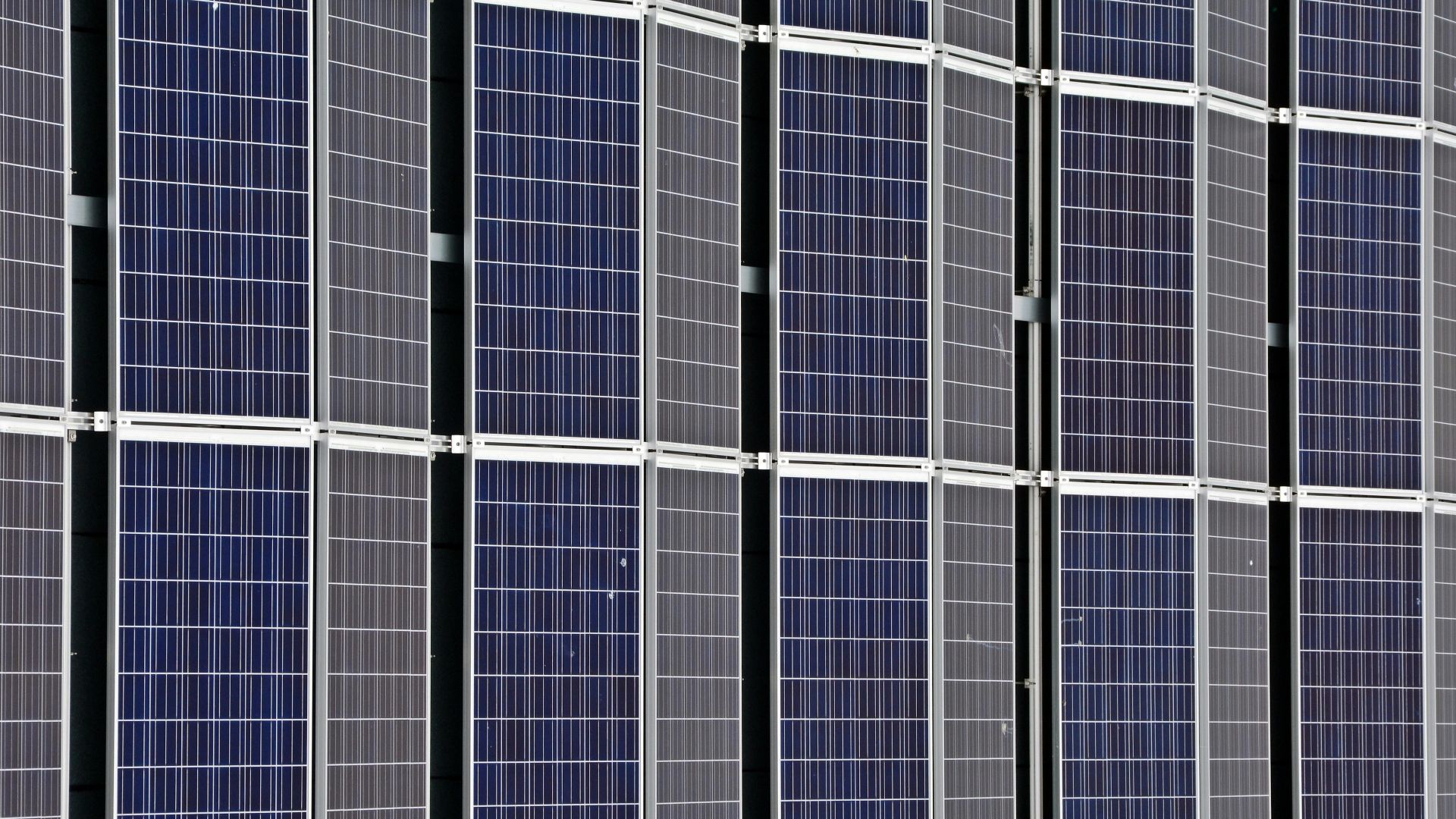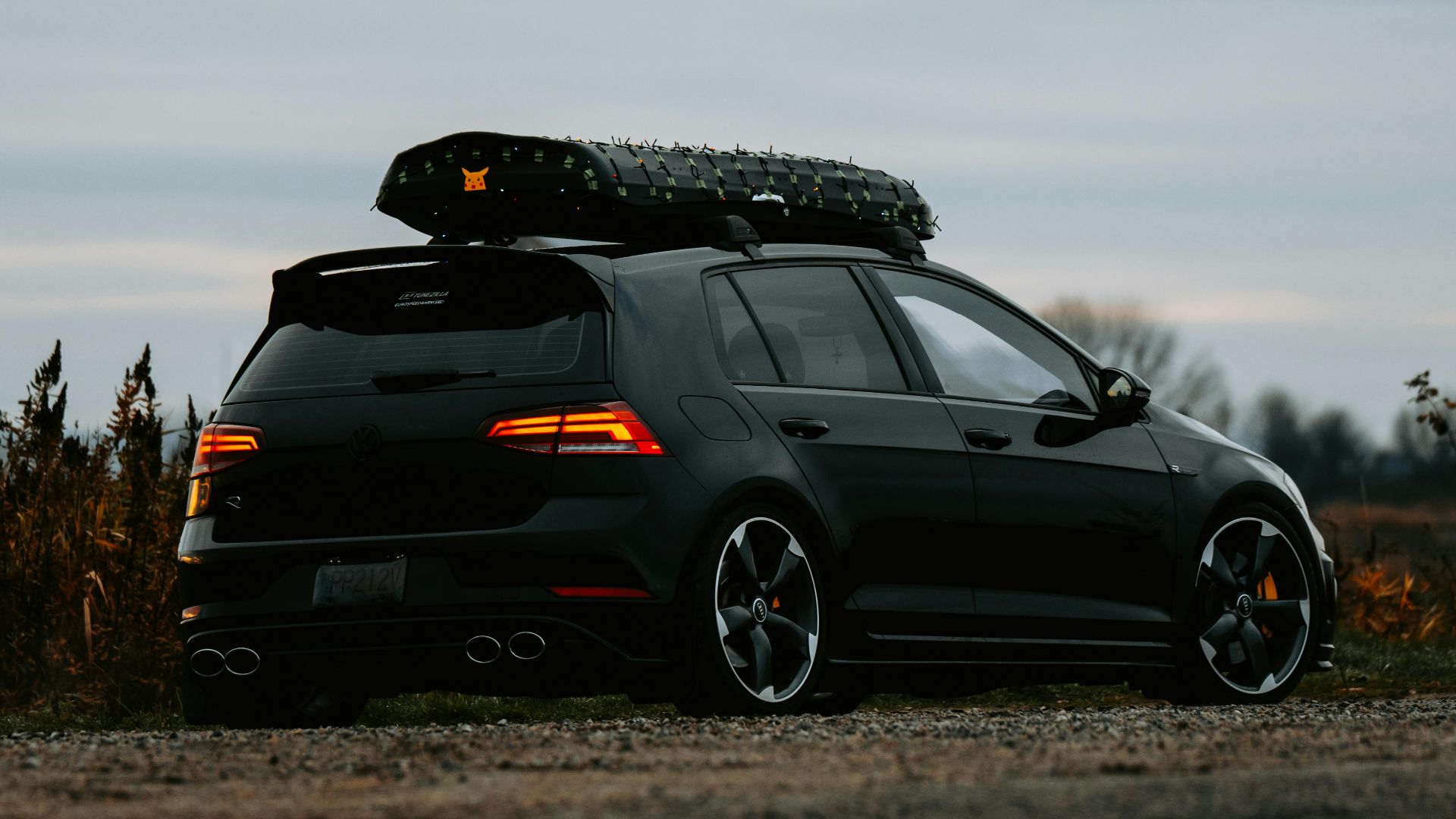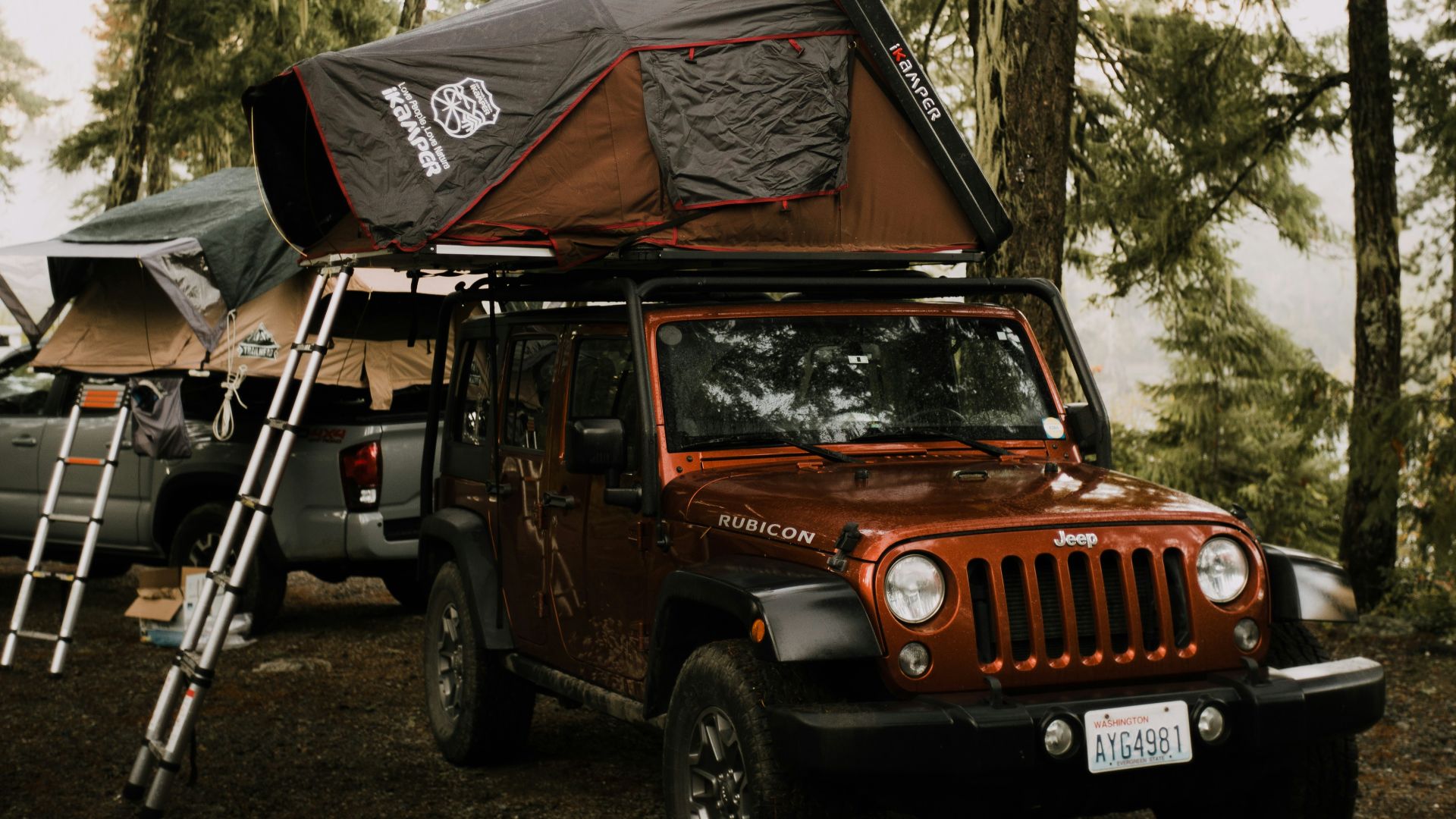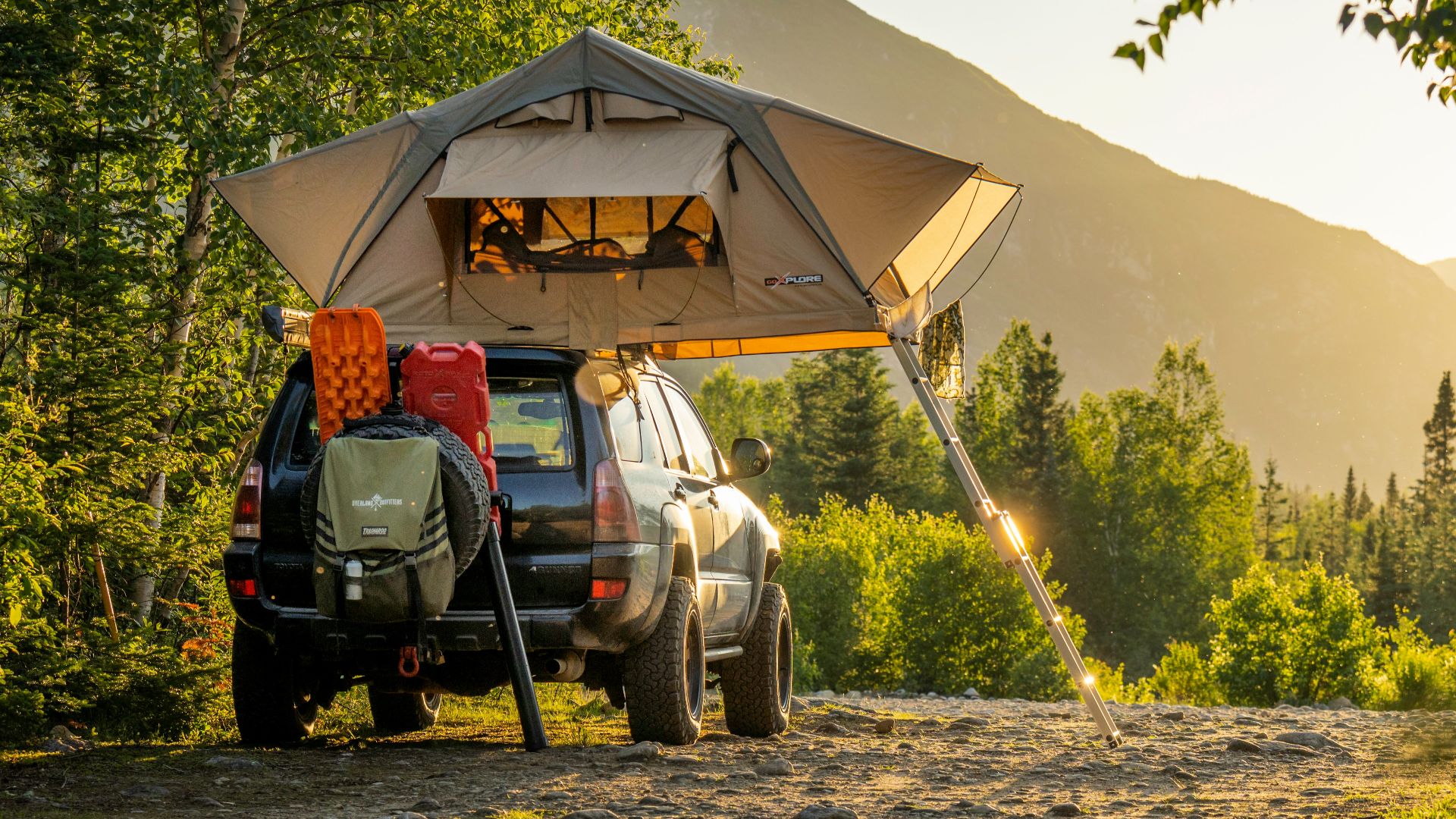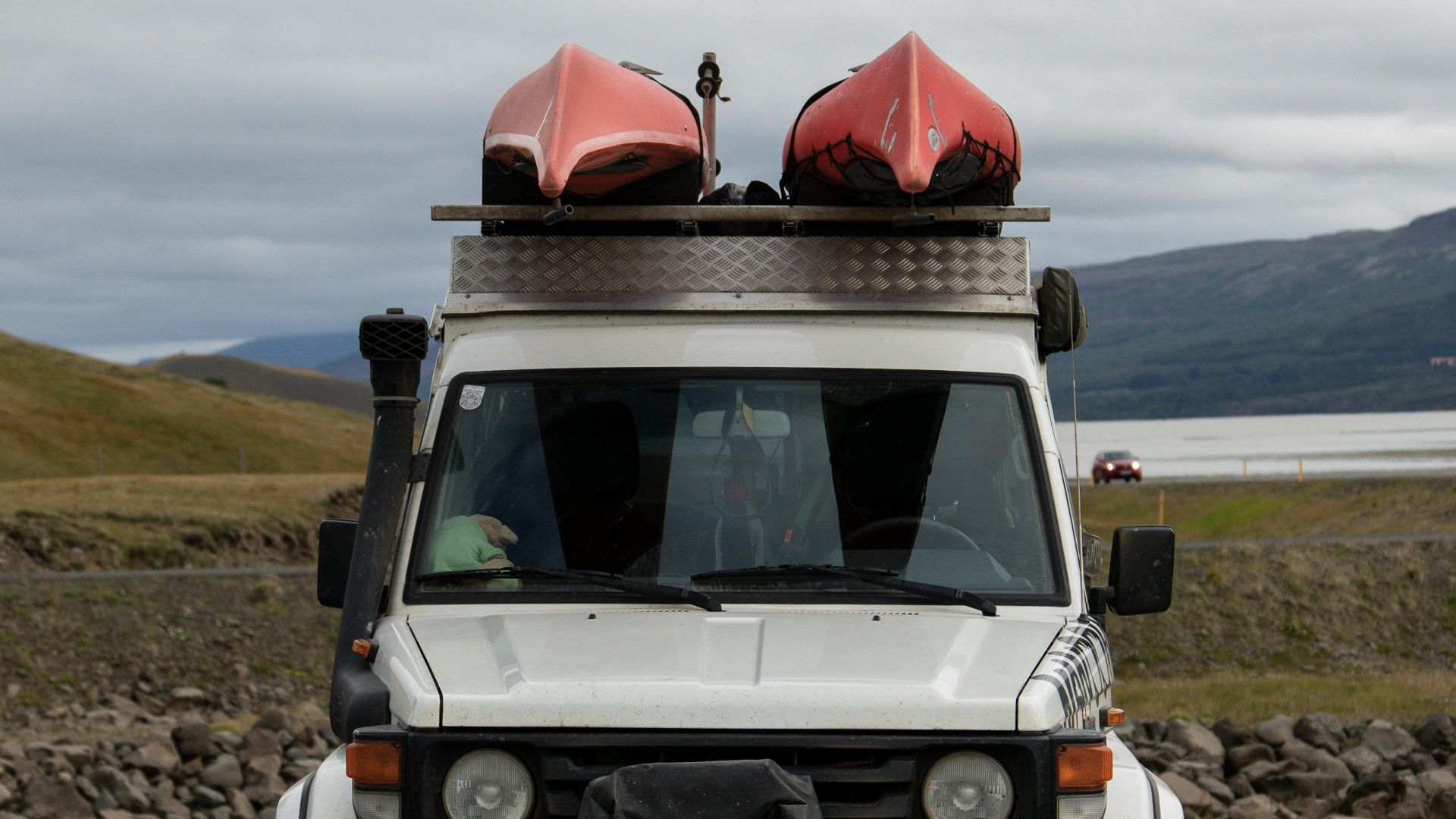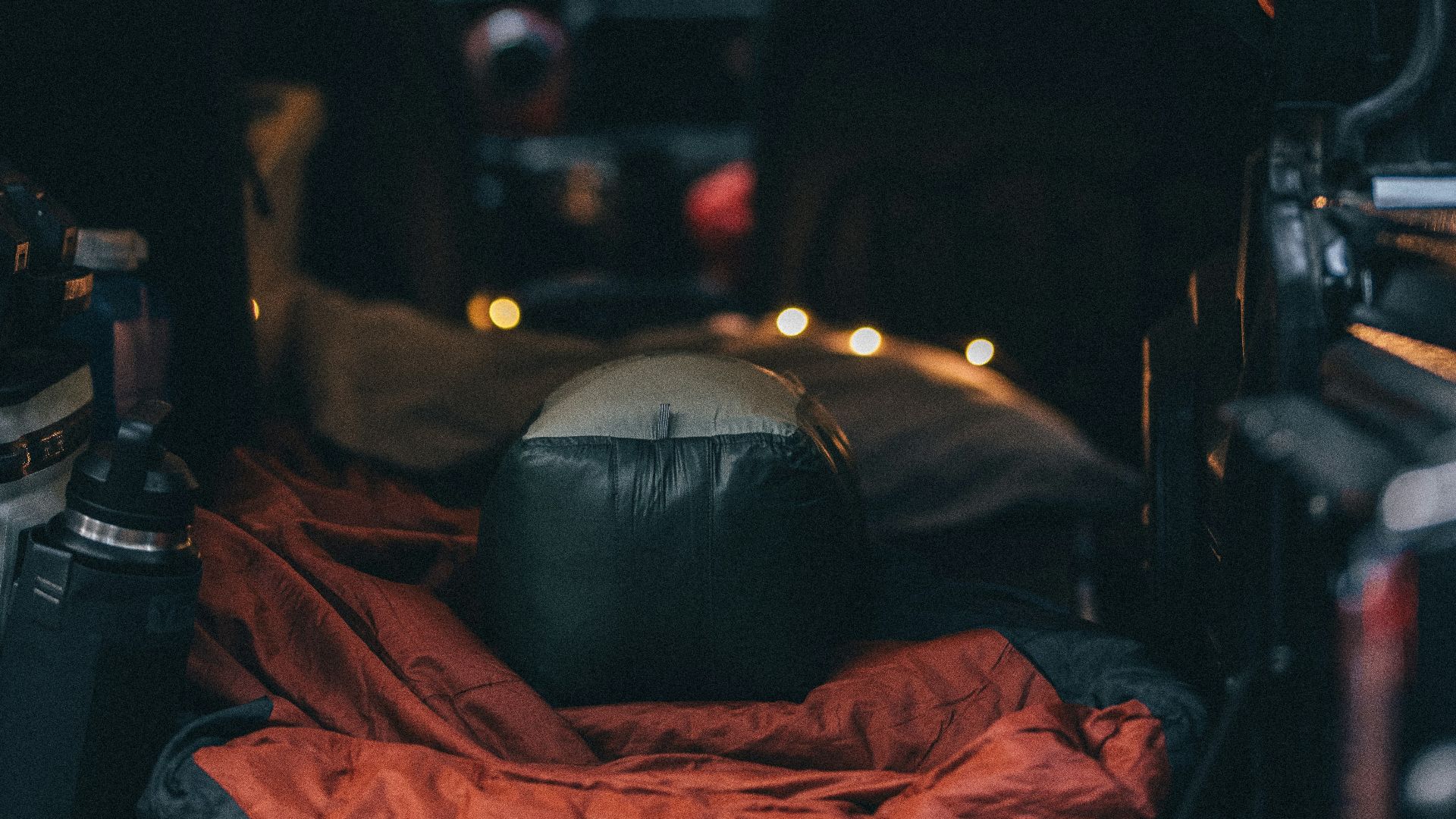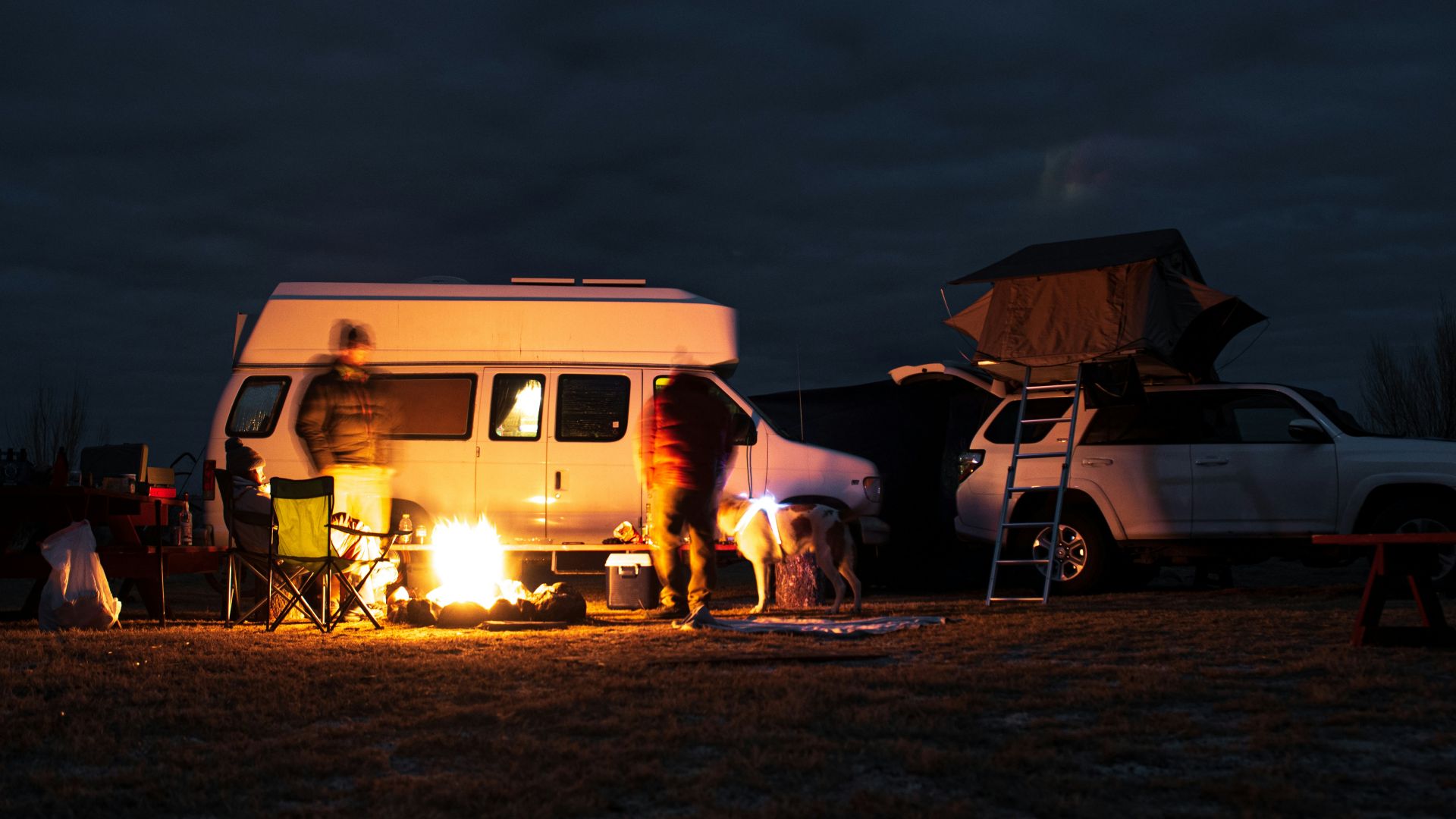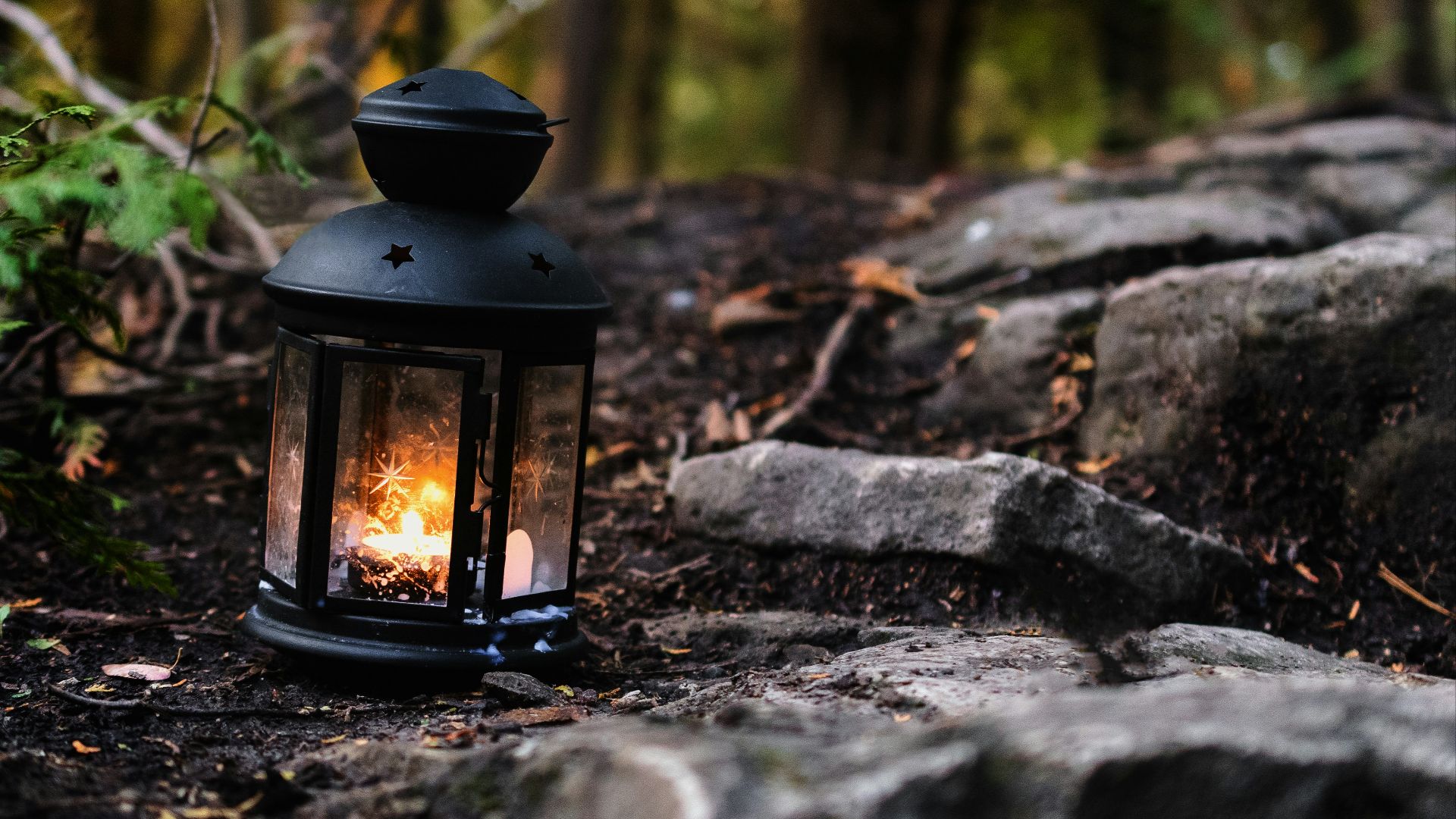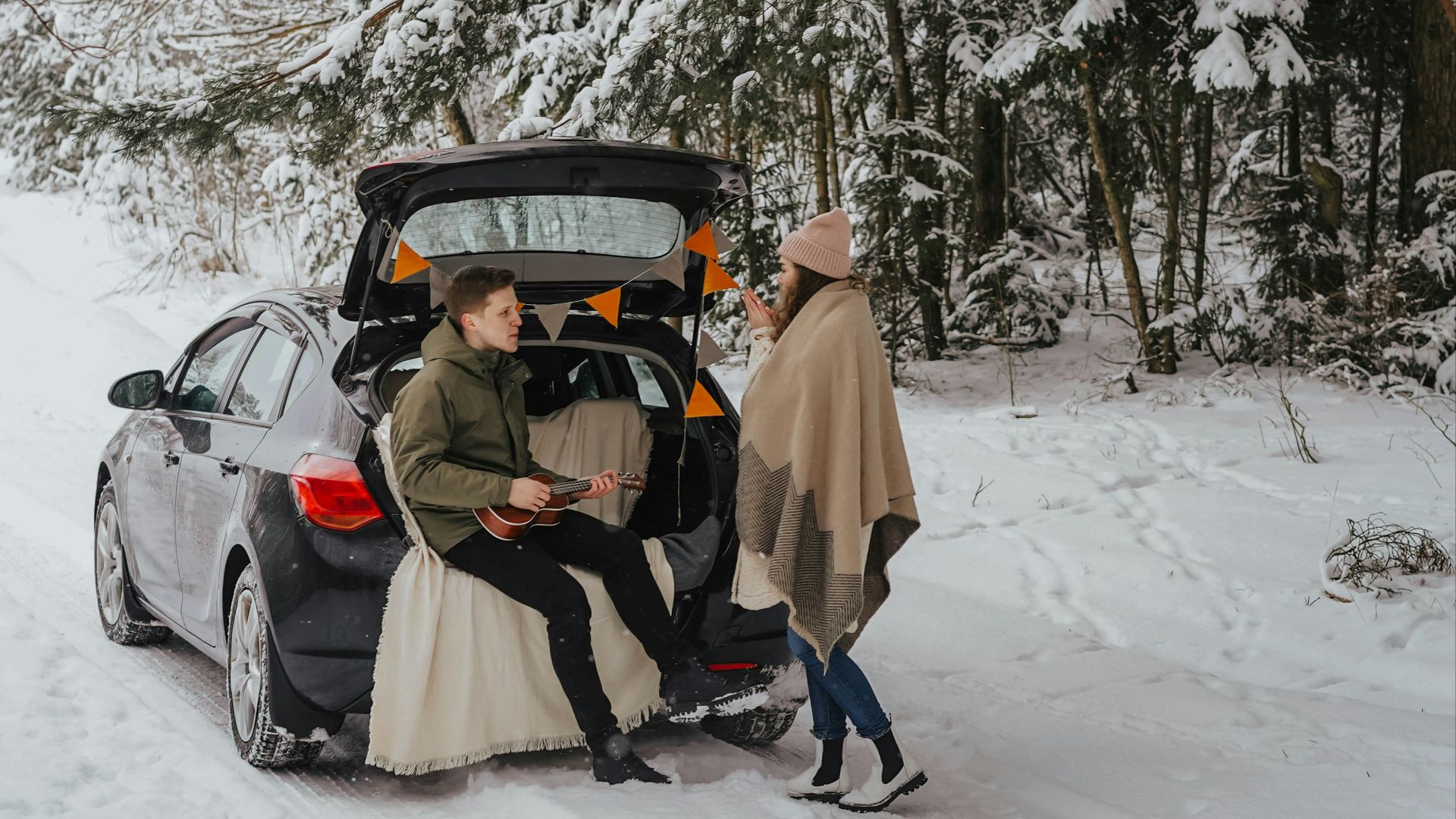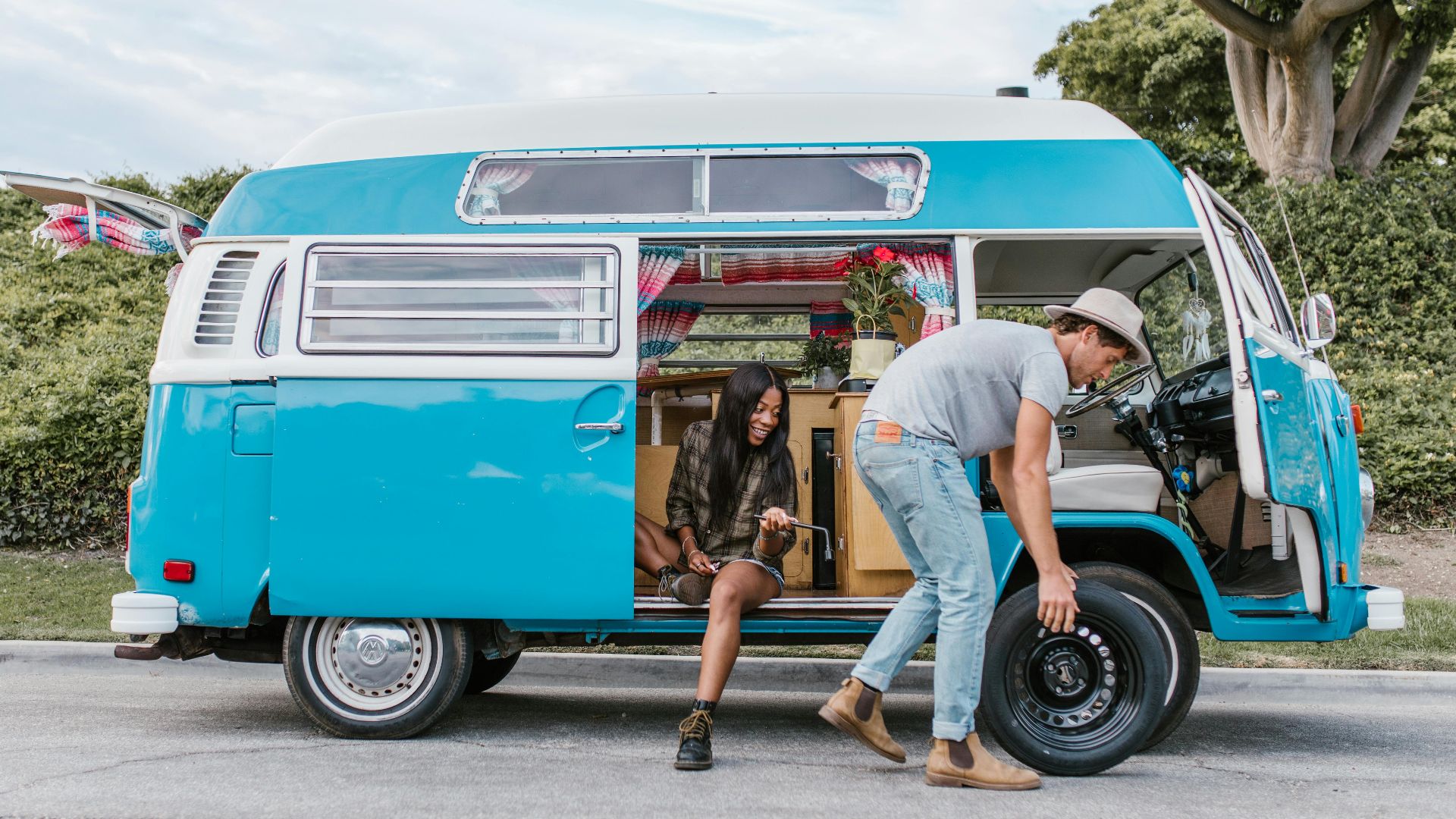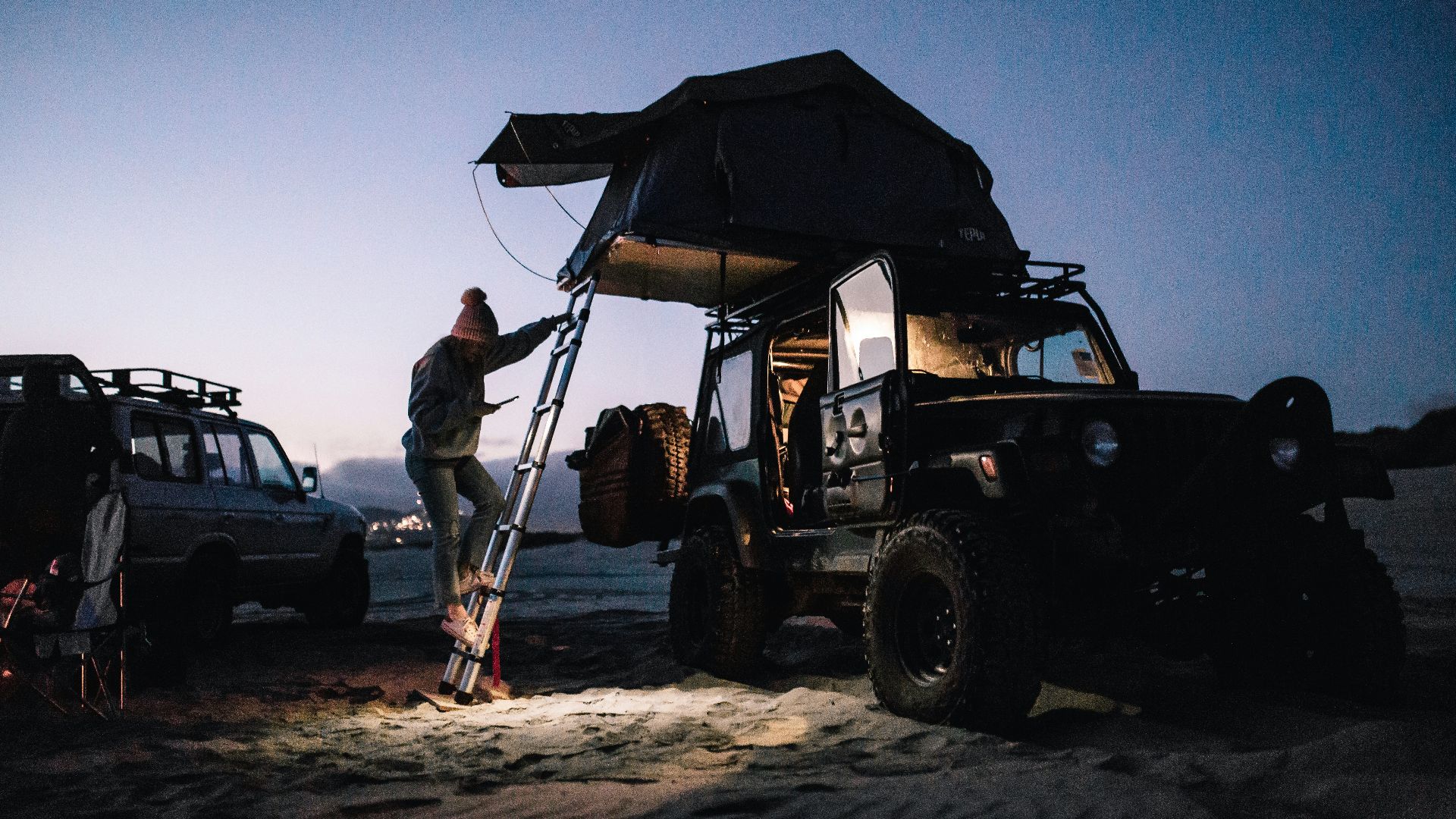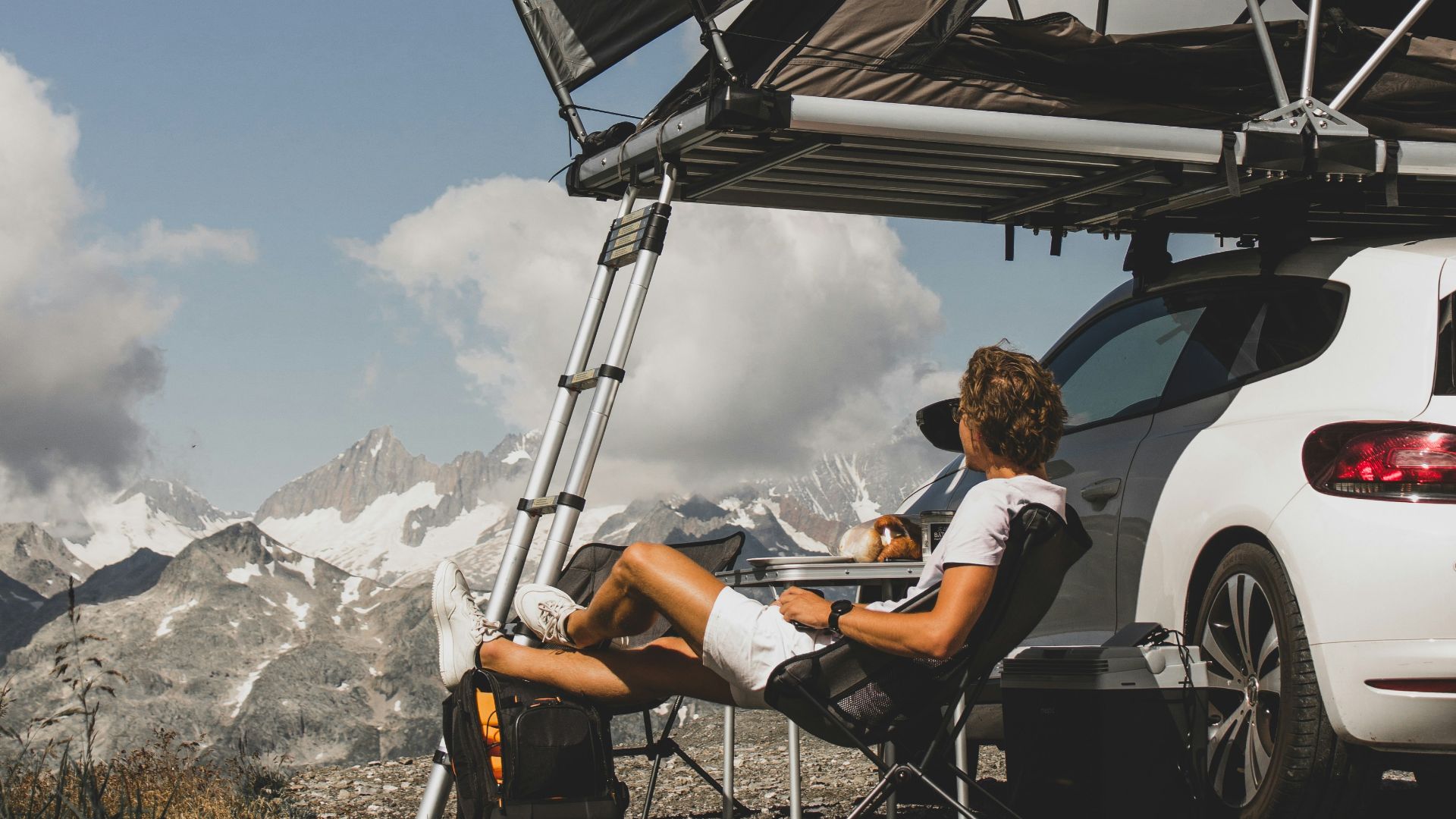Get Ready for Your Next Big Adventure
With the buzz of mosquitoes in the air, it’s officially time to start camping! Grab those solar panels and make sure your budget’s set ‘cause we have some hot tips on how to embrace the camper life.
1. Make Sure You Have the Right Vehicle
Don’t assume that any old vehicle will provide the space you need, especially if you have a family. Whether you invest in a used SUV or do your homework on the best storage conversion for your car, it’s important to hit the road in the right vehicle.
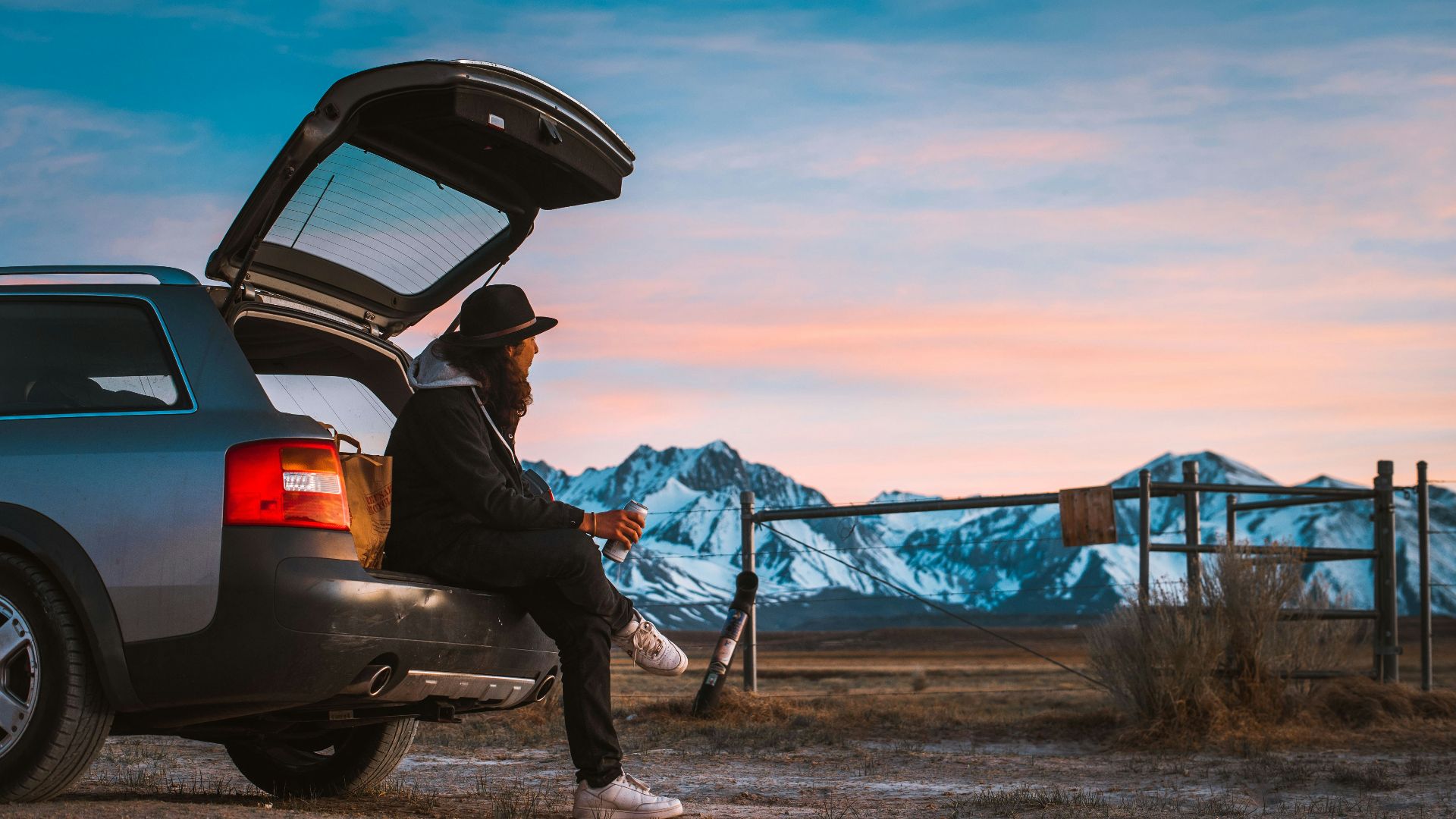 Robson Hatsukami Morgan on Unsplash
Robson Hatsukami Morgan on Unsplash
2. Set a Budget
Car conversions cost a good chunk of change, so plan your budget ahead of time. Expenses can range well into the thousands depending on how many changes you make—and even smaller items like kitchenware or solar panels can climb into the hundreds.
3. Know the Rules
If you’re only planning to camp out in your car, you likely won’t have to worry about the rulebook. But if you’re looking to gut it, it’s best to check laws in your area first; you may not be able to drive certain conversions, or might need permits to get the job done.
4. Invest in Comfortable Bedding
We all know the importance of a good night’s sleep, and your new camper is no exception. Though it seems like a pain up front, you actually have several useful options: foam padding, blow-up mattresses, and even simple cots can turn that floorbed into a great nook.
5. Sleeping Bags and Bunk Beds Work, Too
If your vehicle is a little too small for the whole full bed thing, you can always go for the next best option: sleeping bags and bunk beds. Believe it or not, even smaller vehicles can house collapsible bunks for the kids.
6. Consider a Rooftop Tent
Not everyone wants to spend their night in a cramped van—and that’s where rooftop tents come in! They’re easily assembled and can make a terrific impromptu space for anyone who needs a bit more room at night.
7. Bring Solar Panels
While you can bring portable chargers or generators with you, solar panels get the job done for a fraction of the cost. They’re also much easier to install and don’t come with the headache of technical problems. However, they aren’t cheap, so compare them against your budget before you make the move.
8. Get Creative About Storage
Campers don’t live up to their full potential without storage! The tricky thing about this is that you’ll need to think outside the box. Drawers and shelves work great, but don’t be afraid to incorporate roof crossbars or mini picnic tables. You can even remove the passenger seat for additional storage.
9. Less is More
How much you bring really depends on how far you’ll travel; those looking to embrace full-time van life will need a heck of a lot more than your everyday camper. But either party should weigh the pros and cons of their gear—by only packing the essentials, you make your experience that much more tolerable.
10. Branch Out a Little
Though your vehicle is a great space for sleeping, don’t limit yourself to the car! By making the most of your space and finding the perfect spot, you allow the opportunity for awnings and better cookware.
11. Mosquito Netting for the Windows
You may love the outdoors, but no one likes mosquitoes. Keep those pesky bugs away with the right protection. It’s also a good idea to grab some foam sheets, cardboard, or blackout screens to ensure you have proper privacy.
12. Consider All-Terrain Tires
Though it’s not absolutely necessary, some campers venture farther than others. If you enjoy traveling off the beaten path, consider a fresh set of tires that can keep up with the journey. They’re also a good investment to ensure you have access to cell coverage (unless you like hiking through the wilderness).
13. Go for a Test Drive First
It’s easy to assume our cars are up for the challenge, but it’s worth a test drive beforehand. The last thing you want is to encounter hidden problems on the road, so see what your car can handle and tackle any issues before your journey.
14. Collapsible Tubs Are Your Friends
In a perfect world, we’d have those fancy RVs with built-in kitchens and a standup shower. But for those of us on the ground, we make do with a collapsible tub. They fold neatly, they’re easy to use, and best of all, they’re easy to clean.
15. Keep Yourself Safe
You never really know what’s lurking in the trees, so make sure you protect yourself! Pack snake bite kits and tick treatment to be on the safe side. Bring extra blankets and layers if you’re camping in the fall. Foldable lanterns also keep campgrounds nice and lit.
16. Use Every Nook and Cranny
You’d be surprised just how versatile our vehicles are. From attachable seat storage to cargo netting above your bed, it’s important to use every nook and cranny at your disposal. The more creative you are, the more bang for your buck.
17. You Have Options for Waste
Are you comfortable with a shovel and a newspaper? Yeah, we’re not either. The good news is that you have all kinds of options for safe, sanitary waste disposal! Portable camping toilets come in a variety of sizes and price points, allowing you to get as close to the real thing as possible.
18. Understand Basic Repair and Maintenance
We all wish we had a mechanic on speed dial—but do yourself a favor and learn basic maintenance. When you know how to handle small problems like a flat tire or a drained car battery, you’ll have less to worry about.
19. Contact Your Insurance
Everyday camping doesn’t require a call to your broker. Fully renovating your car does, however. Keep insurance companies in the loop so you don’t lose your policy or see hair-raising prices. (Temporary conversions may not experience any changes, but it’s worth calling ahead anyway.)
20. Ask for Help When You Need It
Whether you’re embracing permanent van life or simply planning a new adventure, camping isn’t easy. Rely on a support system to help you navigate the ins and outs of vehicle modifications, safety, and suggestions for equipment.


